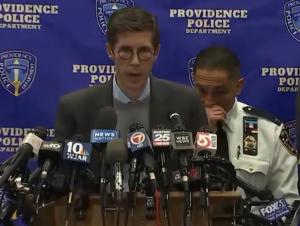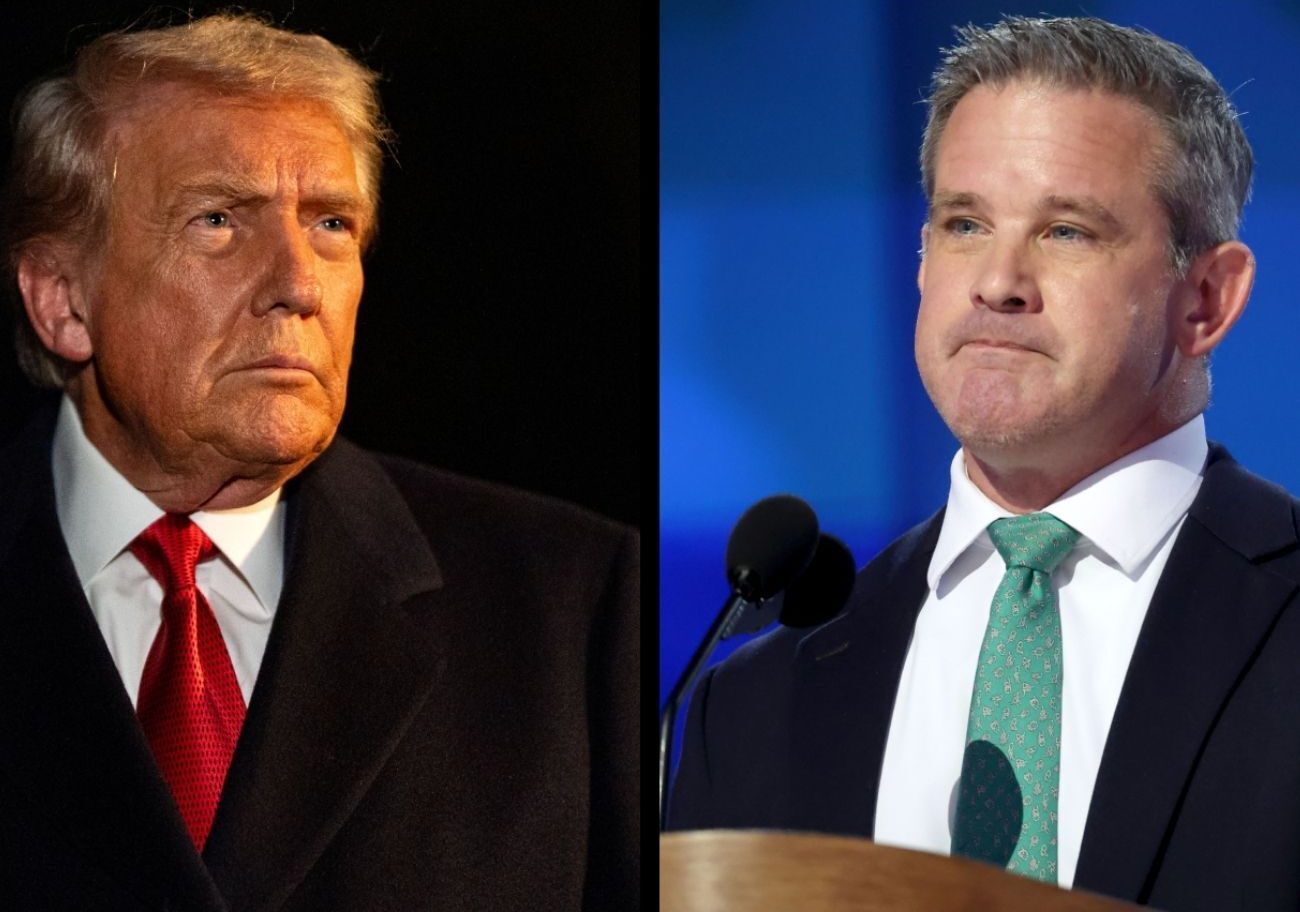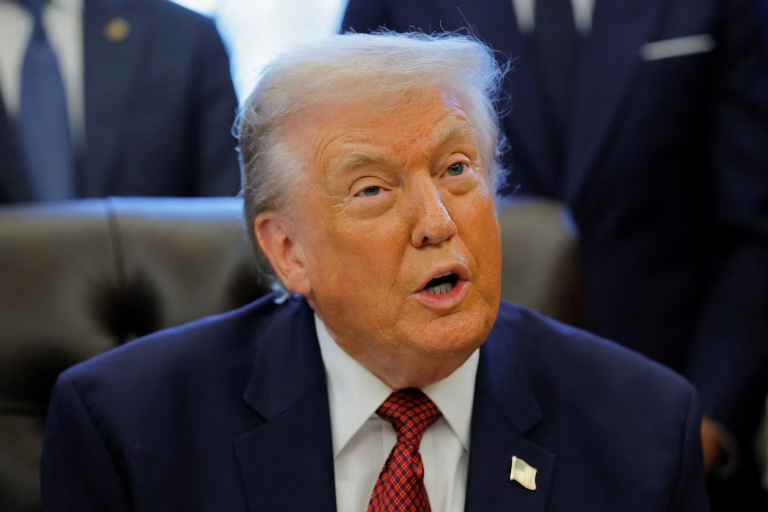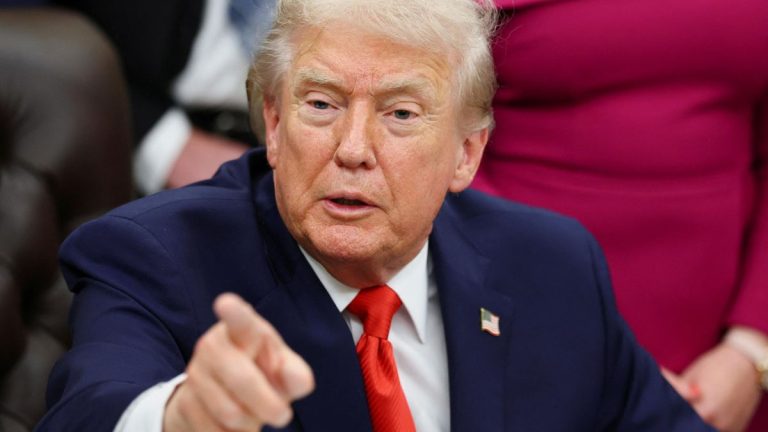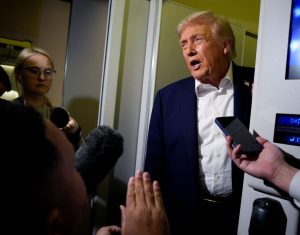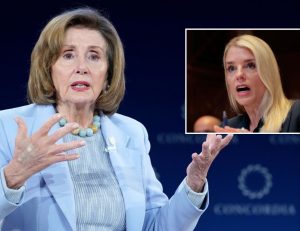Former Congressman Draws Attention After Heated Social Media Exchange
Former Illinois Republican Adam Kinzinger — a onetime congressman and outspoken critic of Donald Trump — found himself at the center of a social media firestorm Thursday following a heated exchange with White House Communications Director Steven Cheung.
The online confrontation, which began over Trump’s controversial White House East Wing renovation, quickly spiraled into a broader debate over personal conduct, political rhetoric, and the increasingly combative tone of American politics.
Kinzinger, 47, who left Congress in 2023 after serving six terms, has remained a prominent critic of the former president since voting to impeach Trump in 2021 following the January 6 Capitol riot.
Cheung, known for his aggressive defense of the administration and frequent back-and-forths with reporters, clashed with Kinzinger on X (formerly Twitter) in a thread that quickly went viral.
WATCH IT HERE.
The Exchange That Started It All
The confrontation began when Kinzinger posted a short video showing the demolition of the White House East Wing, part of a controversial renovation project that the Trump administration says will create a new presidential ballroom.
“Will not a single elected Republican speak up?” Kinzinger wrote.
Cheung fired back moments later:
“The ballroom is going to look so spectacular. Even your simple and dumb ass will want to go.”
Kinzinger replied with a zoomed-in image of Cheung’s face, captioned, “literally you.”
Within minutes, Cheung responded again — this time posting a collage that included photos of Kinzinger and his wife alongside images of a partially nude man, appearing to suggest the former congressman was secretly using a dating platform.
The post — now deleted — immediately drew tens of thousands of views and sparked intense reactions across the political spectrum.
Rumors Reignited
Cheung’s post revived old, unverified rumors that Kinzinger’s photos had once appeared on a gay dating app, allegations that have circulated in pro-Trump corners of the internet since 2021.
There is no verified evidence connecting Kinzinger to any such profile, and he has never publicly addressed the claims.
The renewed speculation, however, triggered a wave of commentary online, ranging from criticism of Cheung’s tone to renewed partisan sniping between Trump supporters and anti-Trump conservatives.
Political strategist Alex Bruesewitz, a former Trump campaign adviser, amplified Cheung’s post and questioned whether reporters had ever investigated Kinzinger’s private online activity.
“Why has no reporter ever asked @AdamKinzinger about his Snapchat scandal?” Bruesewitz wrote. “Did Democrats find something out about Adam’s private life and use it as leverage? We need answers!”
Neither Kinzinger nor his representatives responded to multiple media inquiries following the exchange.
Critics Say the Episode Reflects Toxic Politics
The controversy reignited broader questions about how far online political discourse has fallen — and whether officials should be held to higher standards when engaging publicly.
Media watchdog groups condemned Cheung’s comments, calling them “unprofessional and defamatory in tone.”
“The personal targeting of political opponents is nothing new, but it’s worsening,” said one Washington-based communications ethics analyst. “When senior officials use social media to make insinuations, it undermines trust and corrodes public debate.”
Even some conservative commentators who typically align with the administration expressed discomfort.
“Steven Cheung is a warrior for the president, but this kind of rhetoric is beneath the dignity of the office he represents,” wrote one columnist on Townhall.
Cheung has not deleted his original responses, though one of his more provocative posts has been flagged by X’s content-warning system.
Kinzinger’s History of GOP Fallout
Kinzinger’s clash with Cheung is the latest in a series of tense encounters the former congressman has had since breaking ranks with the Republican Party in 2021.
After voting to impeach Trump, Kinzinger — alongside then-Rep. Liz Cheney (R-WY) — became one of two Republicans to serve on House Speaker Nancy Pelosi’s January 6 Committee.
The Republican National Committee formally censured both members in 2022, accusing them of “participating in a Democrat-led persecution of ordinary citizens.”
In response, Kinzinger defended his decision as an act of conscience.
“I’ve been a member of the Republican Party long before Donald Trump entered the field,” he said at the time. “Rather than focus on how to help the American people, my fellow Republicans have chosen to censure lifelong members for simply upholding their oaths.”
Kinzinger later announced he would not seek re-election, citing growing political extremism and threats against his family.
Cheung’s Role in Trump’s Political Machine
Steven Cheung, a seasoned political operative, has worked closely with Trump’s campaign and White House communications team since 2016.
Known for his sharp tone and rapid-fire online rebuttals, Cheung frequently clashes with journalists and critics on X, often defending Trump against media narratives.
Supporters say Cheung’s blunt approach keeps critics on their toes; detractors argue it reflects a broader erosion of decorum within Washington.
This week’s exchange with Kinzinger, however, appeared to cross a new line — with even some pro-Trump voices urging restraint.
“Cheung is one of the best at fighting fake news, but going after someone’s family or implying things about their private life is not necessary,” said a former senior Trump aide.
White House Distances Itself — Quietly
Though there was no official comment from the administration on the exchange, two sources familiar with internal discussions told The Washington Times that senior communications officials privately asked Cheung to tone down his rhetoric in public responses.
“It’s not helpful,” one source said. “The president wants to stay focused on policy — not petty fights on social media.”
Trump himself has not commented on the incident, though he has frequently criticized Kinzinger and Cheney in past statements, calling them “bitter losers” who “betrayed their voters.”
Political Fallout and Public Reaction
Online, the feud drew thousands of comments — some cheering Cheung’s toughness, others calling the episode “ugly” and “juvenile.”
Kinzinger supporters rallied to his defense, accusing Cheung of trying to humiliate a critic through innuendo. Others noted that Kinzinger’s silence only fueled speculation.
By Thursday evening, Kinzinger’s name trended on X across the United States, while “Cheung” ranked among the top five searches related to the administration.
Journalists and social-media analysts alike said the episode underscored how easily personal feuds can dominate the political conversation, especially in an election season where emotions run high.
“This isn’t about policy or governance,” said media scholar Adrian Morales. “It’s about spectacle — and both sides are participating.”
The Broader Backdrop
The incident comes as Washington prepares for a heated election cycle, with Trump expected to announce new campaign events across the Midwest next week.
Kinzinger, meanwhile, continues to appear regularly as a political commentator on television networks, often criticizing the former president’s policies and influence on the Republican Party.
He has hinted at supporting centrist or independent candidates in upcoming elections, saying the GOP “has lost its moral compass.”
Still, he has not ruled out a future political role, telling one interviewer earlier this year that “there may come a time when voices like mine are needed again.”
What Happens Next
For now, neither side appears ready to de-escalate.
Cheung has continued posting about “accountability and transparency” in politics, while Kinzinger has ignored follow-up comments from supporters urging him to address the claims directly.
Analysts say the controversy is unlikely to have legal consequences but may further polarize opinions among moderate and conservative voters already divided over the legacy of the January 6 investigations.
As one former GOP strategist put it:
“The tragedy here isn’t about rumors or insults. It’s that this is what political communication has become — a blood sport fought through memes.”

James Jenkins is a celebrated Pulitzer Prize-winning author whose work has reshaped the way readers think about social justice and human rights in America. Raised in Atlanta, Georgia, James grew up in a community that instilled in him both resilience and a strong sense of responsibility toward others. After studying political science and creative writing at Howard University, he worked as a journalist covering civil rights issues before dedicating himself fully to fiction. His novels are known for their sharp, empathetic portraits of marginalized communities and for weaving personal stories with broader political realities. Jenkins’s breakout novel, Shadows of Freedom, won national acclaim for its unflinching look at systemic inequality, while his more recent works explore themes of identity, resilience, and the fight for dignity in the face of oppression. Beyond his novels, James is an active public speaker, lecturing at universities and participating in nonprofit initiatives that support literacy and community empowerment. He believes that storytelling is a way to preserve history and inspire change. When not writing, James enjoys jazz music, mentoring young writers, and traveling with his family to explore cultures and stories around the world.



